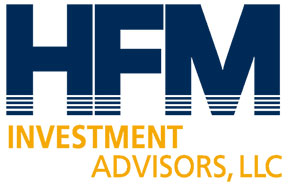
How Do You Manage Finances After Experiencing a Loss?
Navigating Life’s Transitions: An Interview with Brian Masessa, CPA
By Jason Gabrieli, CFP
At HFM Investment Advisors, our mission is to leverage our extensive experience to help clients navigate life’s transitions smoothly. In our latest podcast episode, I had the pleasure of sitting down with Brian Masessa, CPA from Premier Accounting Services in Pitman, NJ. We delved into a sensitive yet crucial topic: managing the financial aftermath of a loved one’s passing, specifically when how it applies to navigating the tax situation.
Setting the Scene
Death is an inevitable part of life, but the complexities that arise in its wake can be overwhelming. From taxes to settling debts, the responsibilities often fall to executors who may not be fully prepared for the tasks ahead. Brian’s expertise in handling the accounting side of this process provides invaluable insights for anyone facing such challenges. Our conversation aimed to shed light on these complexities and offer guidance on how to manage them effectively.
Key Questions and Responses
Jason Gabrieli: Brian, thank you for joining us. Can you give us a bit of background on what you do for people managing an estate after a loved one passes away?
Brian Masessa: Certainly, Jason. When someone passes away, the executor or the person managing the estate needs to pay various taxes and navigate the financial and legal processes. My role involves helping them gather necessary documentation, file the appropriate tax returns, and ensure they pay the right amount of taxes without overpaying. It’s about providing clarity and support during a very challenging time.
Jason Gabrieli: Many people might not realize the financial complexities involved when someone passes away. Can you explain some common misconceptions and the actual financial tasks that need to be handled?
Brian Masessa: Absolutely. A common misconception is that if someone doesn’t have much, the process will be simple. However, even modest estates can be complex. For example, income continues to accrue after death from rental properties or investments, which needs to be reported. Executors must also deal with liabilities like real estate taxes and utilities. It’s crucial to get organized quickly and seek professional advice to avoid costly mistakes.
Jason Gabrieli: How do people typically find you? Are you brought in by the deceased’s accountant or by the executor’s initiative?
Brian Masessa: Often, executors come to us through referrals from local law firms. Lawyers handle the legal aspects, but we manage the numbers. It’s a team effort, involving lawyers, accountants, and sometimes financial advisors. Many people initially overlook the need for an accountant, but we step in to provide essential financial guidance.
Jason Gabrieli: What are some specific taxes executors need to be aware of?
Brian Masessa: Executors need to understand both income taxes and estate or inheritance taxes. The deceased’s income must be reported on a final 1040 tax return, and any income generated by the estate after death is reported on a 1041 return. Estate taxes vary by state, with some states like New Jersey having an inheritance tax, which can significantly impact non-linear heirs like nieces or nephews.
Jason Gabrieli: For listeners who want to prepare their estates to ease the burden on their heirs, what proactive steps can they take?
Brian Masessa: The most crucial steps are having an updated will and organizing all financial documents. Knowing what assets you have and keeping detailed records can save your executor a lot of time and reduce expenses. It’s also wise to build a relationship with financial professionals who can provide continuity and support during the transition.
Final Thoughts
Dealing with the financial aftermath of a loved one’s death is daunting, but with the right preparation and professional support, it can be managed effectively. Brian’s insights underscore the importance of proactive planning and the value of having a skilled accountant involved early in the process.
For those dealing with this now or wanting to prepare for the future, you can reach Brian Masessa at Premier Accounting Services in Pitman, NJ. His expertise could be invaluable in navigating these challenging times.
Useful Links
Connect with Jason Gabrieli: LinkedIn
Connect with Brian Masessa: LinkedIn
Like what you’ve heard…
Learn more about HFM HERE
Schedule time to speak with us HERE

102 WEST HIGH STREET, SUITE 200
GLASSBORO, NJ 08028
HFM Investment Advisors, LLC is a registered investment adviser. All statements and opinions expressed are based upon information considered reliable although it should not be relied upon as such. Any statements or opinions are subject to change without notice. Information presented is for educational purposes only and does not intend to make an offer or solicitation for the sale or purchase of any specific securities, investments, or investment strategies. All investments involve risk and are not guaranteed. Information expressed does not take into account your specific situation or objectives and is not intended as a recommendation appropriate for any individual. Listeners are encouraged to seek advice from a qualified tax, legal, or investment advisor to determine whether any information presented may be suitable for their specific situation. Past performance is not indicative of future performance.
